Worcester County, MA | Solar Energy
Installing Solar Panels in Worcester County, Massachusetts: Costs, Incentives & More
Key Details
- The cost per watt of a 5kW solar system in Worcester County is $3.50, which translates to about $17,500 for full installation.
- Homeowners in Worcester, Massachusetts can take advantage of multiple solar incentives, including the Federal Solar Investment Tax Credit (ITC), Residential Renewable Energy Income Tax Credit, and Solar Massachusetts Renewable Target (SMART) program.
- Homeowners can sell excess solar energy through net metering.
How Much Do Solar Panels Cost in Worcester County, MA?
As of 2023, the average cost of solar panels in Worcester County, MA ranges from $3 to $5 per watt. The cost of installing a solar panel system size of 5 kilowatts (kW) in Worcester County, MA, is between $15,000 to $25,000, without tax credits.
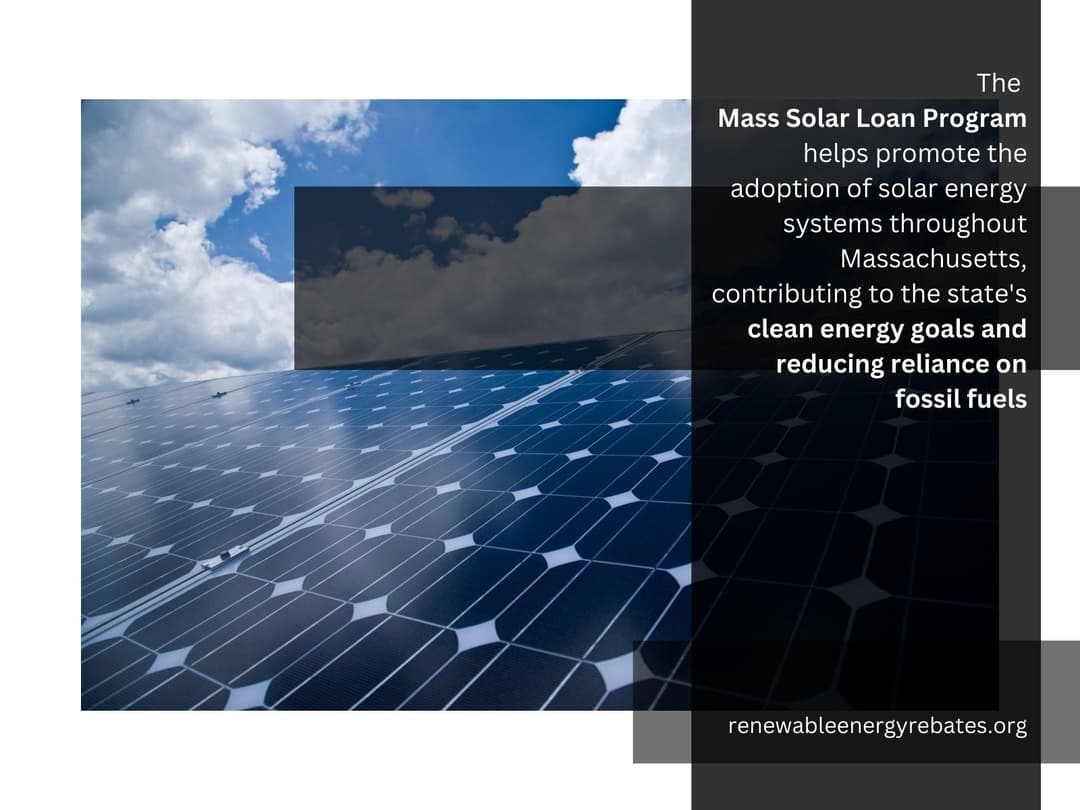
After calculating the 30% federal investment tax credit, Massachusetts state tax credit, and other local incentives, the cost of installing the solar panel system reduces by thousands of dollars.
Estimated average solar panel cost by system size in Worcester County, MA.
| Energy System Size | Solar Panel Cost | Cost After Credit |
| 3kW | $10,500 | $7,350 |
| 4kW | $14,000 | $9,800 |
| 5kW | $17,500 | $12,250 |
| 6kW | $21,000 | $14,700 |
| 7kW | $24,500 | $17,150 |
| 8kW | $28,000 | $19,600 |
| 9kW | $31,500 | $22,050 |
| 10kW | $35,000 | $24,500 |
How Long Does It Take for Solar Panels to Pay For Themselves in Worcester County?
In Massachusetts, the typical payback period for solar panels is between five to nine years. Your payback period depends on the cost of your system and the amount of power it produces. The more energy your system produces, the quicker it pays for itself.
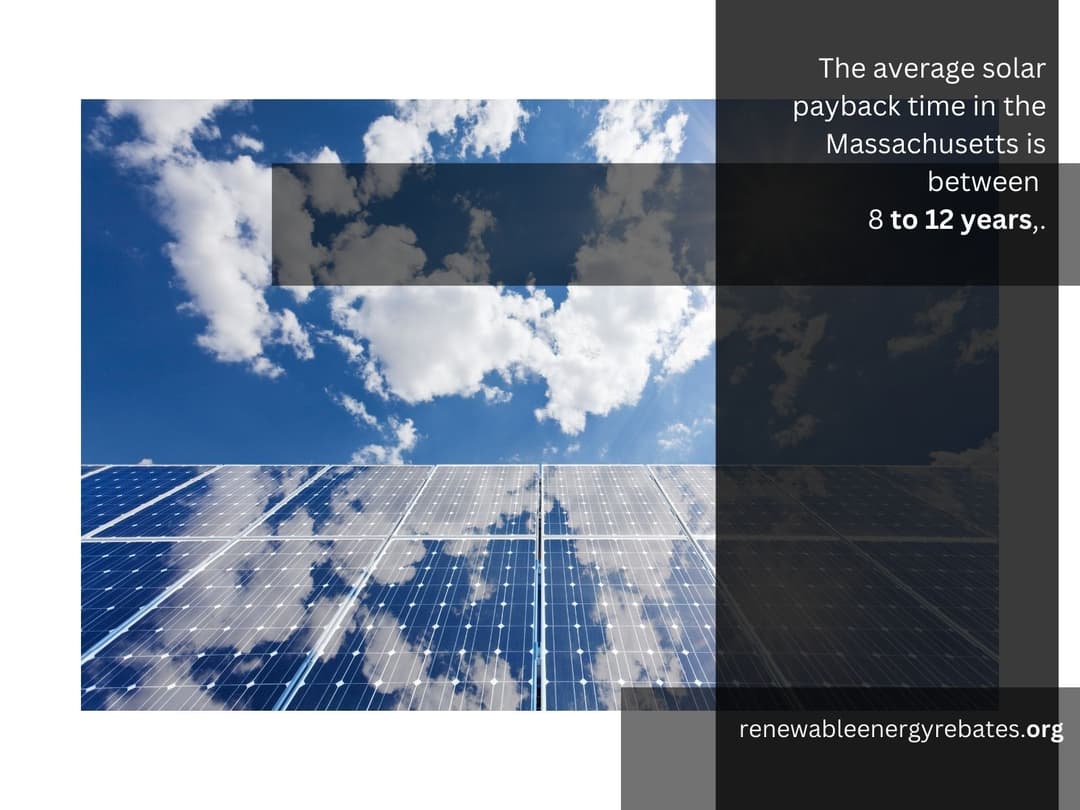
Some of the factors that influence the payback period of a solar system installation in Worcester, Massachusetts include:
- Average electricity use in your home, which determines the number of solar panels required.
- The total cost of the system.
- Solar incentives and rebates qualify for programs and promotions that reduce the cost of purchasing a solar system.
- Energy generated by your solar system – The more electricity your system generates, the quicker your payback period arrives.
- Electricity costs and the rate at which they are rising.
Do Solar Panels Increase a Home Value in Worcester County?
The market value of a home can rise with the installation of solar panels and batteries. According to a research by the Lawrence Berkeley National Laboratory, solar panel installations can boost a home’s resale value by up to $5,911 for every kilowatt of solar panels installed. Going by this figure, below is the amount solar panels increase home value:
| Solar System Size | Amount Solar Panels Increase Home Value |
| 4kW | $23,644 |
| 5kW | $29,555 |
| 6kW | $35,466 |
| 7kW | $41,377 |
| 8kW | $47,288 |
| 9kW | $53,199 |
| 10kW | $59,110 |
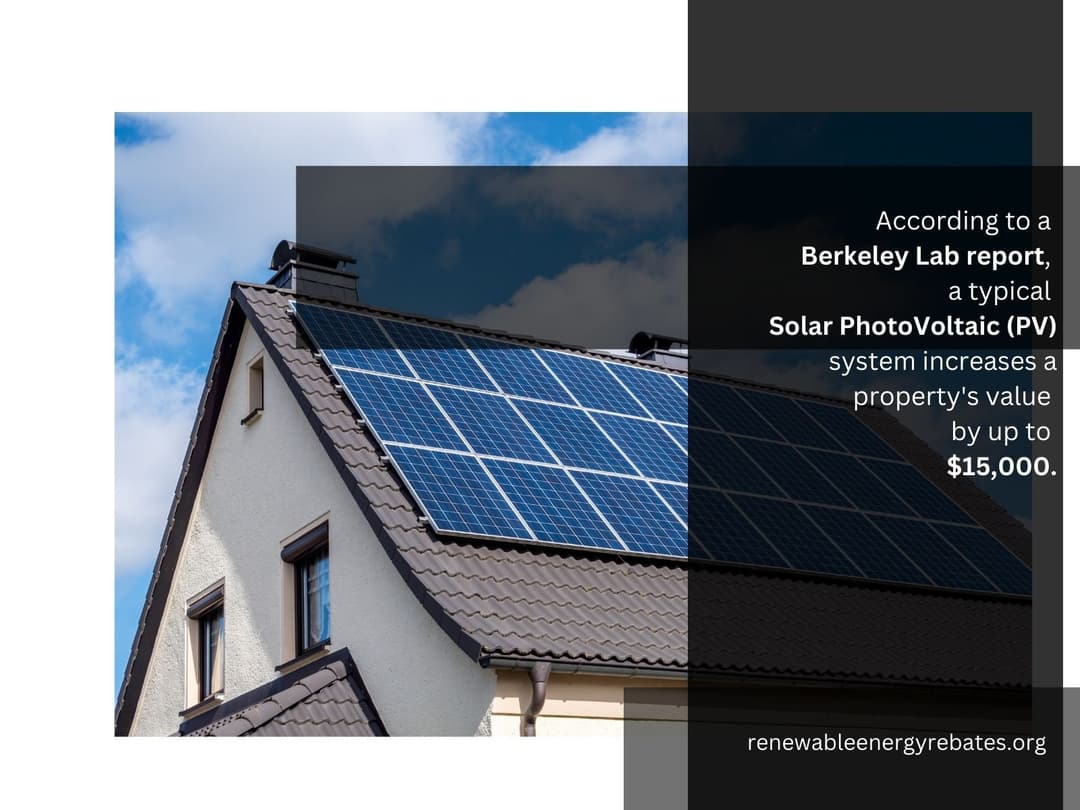
The factors that influence the added value of solar panels to a home in Worcester, Massachusetts include:
- Geographic location: The cost of electricity varies in different communities (and higher electrical costs result in greater value from your solar panels). Furthermore, geography might affect the social advantages of installing solar electricity and how much sun exposure you receive.
- Local solar installation prices: Costs associated with installing a new system in your location is another geographic factor. Your home will be worth more if a buyer would save money by buying a house with a system already installed.
- System output: The larger the system output, the more value it adds.
- System age: You will have to take depreciation into consideration if your solar system is older. When you sell your home, older systems will not add much value because there is a greater likelihood that the buyer will need to make repairs or replace parts sooner.
- System replacement value: Similar to system age, the cost or difficulty of replacing individual components of your system has an impact on the overall added value of the system.
Are Solar Panels Exempt From Property Taxes in Worcester County?
Yes. If you own a solar system in Worcester County, MA, you qualify for the state’s property tax incentive that grants 100% property tax exemption for 20 years.
This adds up to around $18,287.68 in property tax savings for the average home in the state.
What Are the Incentives for Solar Energy in Worcester County, Massachusetts?
The incentives available for solar energy in Worcester County, Massachusetts, include the following:
Federal Solar Investment Tax Credit (ITC)
The federal residential solar energy credit allows a taxpayer in Worcester County to claim a tax credit for a part of the cost of a solar system bought and installed by the taxpayer. The system must be fully installed during the tax year. There is no maximum claim amount.
Worcester residents who installed solar PV systems in 2020 or 2021 were eligible for a 26% tax credit. This credit was increased when Congress passed an extension of the ITC in August 2022 to 30% for installations between 2022 and 2032.
A 30% tax credit was also available for systems that were installed on or before December 31, 2019. The systems installed in 2033 and 2034 will drop to 26% and 22%, respectively. If Congress does not extend the tax credit, it will end in 2035.
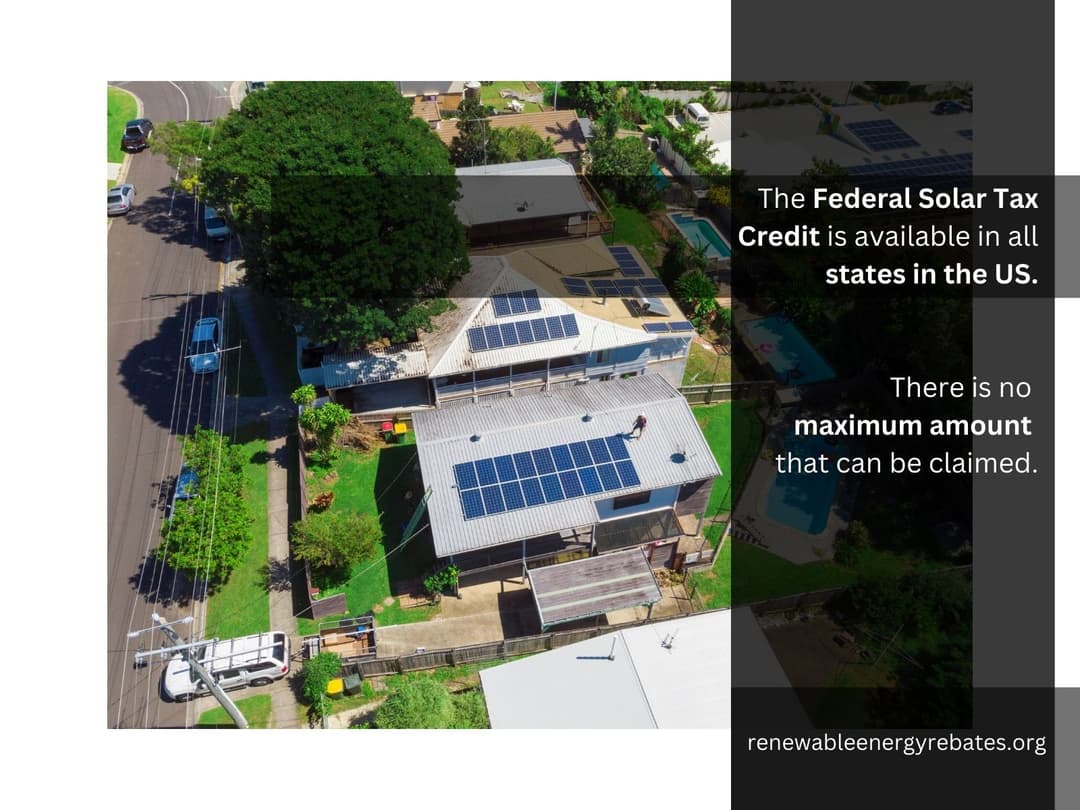
Expenses covered by the tax credit include the following:
- Solar PV cells or panels (including those that power attic fans, but not the fan itself).
- Contractor labor costs for site preparation, assembly, or first installation, including developer fees, inspection fees, and permit costs.
- Equipment for the balance of the system, including wiring, inverters, and mounting devices.
- Energy storage systems with a 3 kilowatt-hour (kWh) or higher capacity rating (for systems installed after December 31, 2022). The energy storage devices are nevertheless subject to the installation date requirements even if they are installed in a tax year that is later than the one in which the solar energy system was installed.
- Sales tax on allowable costs.
Residential Renewable Energy Income Tax Credit
This state tax credit entitles homeowners to a 15% tax credit of up to $1,000 on their tax return for the net cost of installing a renewable energy system in their principal residence. The net expenditure comprises the overall purchase price of the renewable energy source and the cost of installing it, less any federal tax credits and rebates/grants from the Department of Housing and Urban Development.
Solar Massachusetts Renewable Target (SMART) Program
The SMART program allows residents in the state to be paid monthly for each kilowatt-hour (kWh) their system generates over ten years of energy generation. The Commonwealth of Massachusetts pays customers of Eversource, National Grid, and Until a fixed rate per kWh of solar energy. Depending on your area and utility, the price per kWh for systems under 25 kW ranges from 19 to 31 cents.
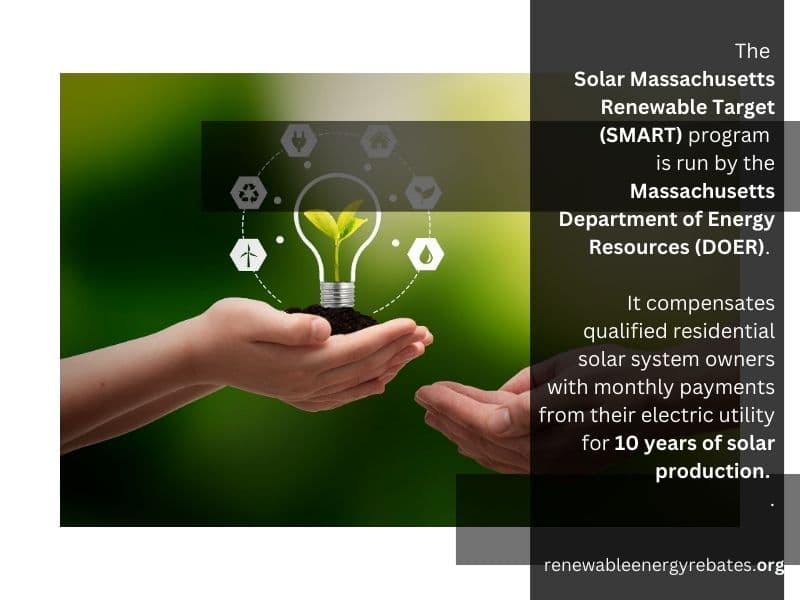
Additionally, the state makes solar power more affordable for customers by offering higher incentive rates for low-income clients or those who build battery storage alongside their solar panel installation.
Massachusetts Net Metering Program
Through the Massachusetts net metering program, solar homeowners get utility bill credits per kilowatt-hour for any excess electricity their solar panels produce and transmit to the grid.
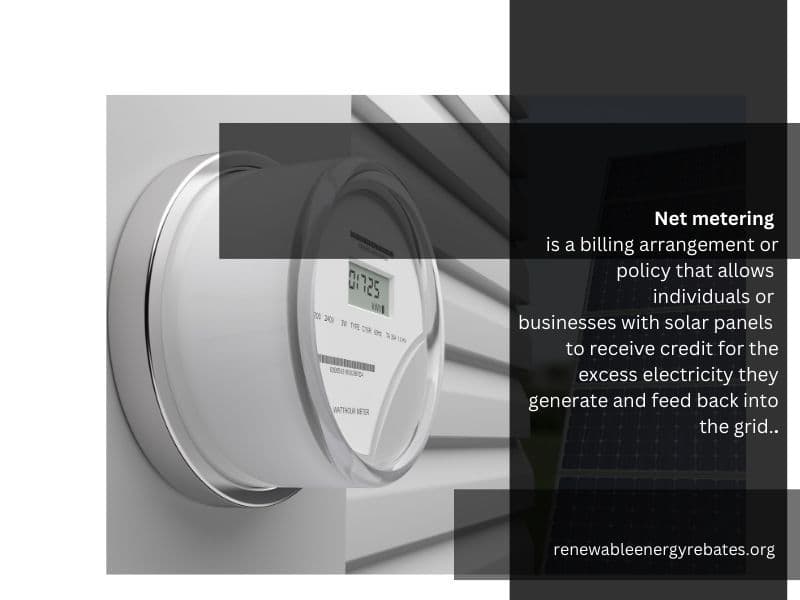
Massachusetts Solar Tax Exemption
Massachusetts exempts solar system equipment from state sales tax when they are utilized as the main or backup power source for a person’s primary residence.
Massachusetts Property Tax Exemption
Massachusetts allows 100% tax exemption for solar energy systems used as a primary or auxiliary power system for energy needs from local property tax for 20 years. Hence, taxable properties are exempt from property taxes on their solar system. Note that commercial solar systems are taxed as personal property (equipment) and under payment-in-lieu of taxes (PILOT) agreements between the municipality and the owner of the system.
Massachusetts State Sales Tax Exemption
There is a sales tax exemption of 6.25% for persons that install solar systems in their principal residence.
SMART Battery Adder
If your solar system consists of battery storage, you are eligible for an extra “adder” to your SMART program incentive rate. During the ten years your SMART program will run, you will earn extra money because of your battery storage.
The rates you will receive depends on your battery type and the size of your solar system. It is difficult to calculate your battery adder, but you can use the Massachusetts Department of Energy Resources (DOER) calculator to find out.
ConnectedSolutions Program
ConnectedSolutions program is a demand response program where you get yearly rewards for permitting your utility company access and use the energy you store in your battery during high energy demand.
Your overall incentive benefit will depend on the power your solar battery can continuously supply during these events and the number of events you participate in each year. However, an average battery that can continuously supply 5 kW of power during these events can earn you up to $1,375 per year of participation.
How Can I Sell Solar Energy in Worcester County, Massachusetts?
You can sell excess solar energy generated in Worcester County, Massachusetts, through net metering. Net metering allows residents to transfer excess energy generated by their solar system to the grid in exchange for credit from their electric companies. The credits reduce your utility costs.To net meter in Massachusetts, you must be a customer of a regulated electric company (Eversource, National Grid, or Unitil) in the state. You will need interconnection approval from your electric company. Also, your solar system must be:
- 2 MW or less for a private facility
- 10 MW or less for a public facility
What Are the Best Solar Energy Companies in Worcester County, Massachusetts?
The best solar energy companies in Worcester County, Massachusetts, are:
All Energy Solar
66-D Mainline Drive
Westfield, MA 01085
(800) 620-3370
Plug PV
253-D Worcester Rd
Charlton, MA 01507
(518) 948-5316
Great Sky Solar
29 Mill Street
Arlington, MA 02476
(888) 966-0726
Invaleon Solar
26 Parkridge Road
Suite 1b
Haverhill, MA 01835
(857) 360-4906
Insight Solar
59C North Street
Hatfield, MA 01038
(413) 338-7555
ACE Solar
1600 Osgood Street #2043
North Andover, MA 01845
(800) 223-1462
Future Energy Solar
5 Short Street
Melrose, MA
(781) 960-7005
NuWatt Energy
400 Tradecenter Drive #5900
Woburn, MA 01801
(877) 772-6357
Second Generation Energy (SGE Solar)
85 S Bow Street #3376
Milford, MA 01757
Phone: (508) 377-4037
Fax: (888) 294-3067
Green Power Energy
117 Kendrick Street
Suite 300
Needham, MA 02494
Do You Need a Handyman or a Solar Installer in Worcester County?
The Office of Energy Efficiency and Renewable Energy recommends that installations be done by a professional. The professional should be someone who holds a certification to carry out installation and works with high-quality solar panels. The industry-standard certification is granted through the North American Board of Certified Energy Practitioners (NABCEP).
Note: DIY installation are also permitted in Worcester County and other counties in Massachusetts. Homeowners can opt to install solar energy systems with a handyperson or solar installer.
Are Solar Panels Worth It in Worcester County, MA?
Yes. Solar panels are worth it in Worcester County, MA, especially for homeowners. This is because they reduce your electricity costs, helping you save on electricity bills.
Also, the incentives available for owning a solar system in Massachusetts make it easier for you to purchase and own a solar system in the state. Massachusetts is considered one of the best states to operate a solar system because of its climate.
Solar panels may not be worth it for you if you rent your property. It may also not be worth it if your electricity costs over time will significantly be less than the upfront costs of purchasing a solar system. However, this is unlikely to happen because electricity costs have been on a steady rise with little signs of a drop.
What Determines the Cost of Solar Panels in Worcester County, Massachusetts?
Different factors affect the cost of solar panels in Worcester County, Massachusetts, including:
Type of Panel
The type of panel you install affects the general quality of your solar system. There are three main types of panels: monocrystalline, polycrystalline, or thin film. Monocrystalline possesses the highest quality and it is the most expensive of the panel types.
Brand and Quality of Panel
Similar to practically any product, the cost of your solar panel depends on the quality of the brand. Some brands are known for producing quality solar panels that come at a higher cost than solar panels from other brands.
Size of Solar System
The bigger your solar system, the costlier your solar panels. An important thing to note is that solar energy costs per unit drop on average with larger systems.
Levelized Cost of Energy (LCOE)
LCOE is used to describe the cost of the electricity generated by solar panels over an extended period, usually the system’s warranty period (25 years). By buying solar at a fixed price at a per-kWh rate, you are constructing a hedge against the increasing energy cost. You can get your LCOE by knowing the total price for the system. You should add financing costs and deduct any incentives obtained. Also, you should know how much power your solar system will produce over time (generally 25 years).
Price Per Watt
Generally, the total cost of installation includes equipment, labor, permit, taxes, and other costs. You can use the cost of solar panels per watt to know the estimated cost of installing a system. The average price per watt in Worcester County, MA, is $3.50. Hence, the cost per watt of a 5kW (or 5,000-watt) solar system in the county will be $17,500. This refers to the full cost of installation, not simply the price of the panels. Some installers use “Wp” instead of the price or cost per watt. “Wp” means watt-peak. It is another way to describe the installed capacity of a solar PV system.
Installation Company
Each solar installation company has its labor rates for installation works. You should consider going for the services of reputable installation companies in the county. They have better reviews, more experience, and take a shorter time to install your system. Also, you should note that these companies may cost more, but you can be sure that it is in exchange for quality service.
Your roof
The price of installing solar panels includes more than simply the cost of the equipment. Your solar installer will also charge for the difficulty of the installation, so if your roof is complicated, your system may cost extra.
Permitting and interconnection
Although it is not a large factor, the cost of obtaining permits and interconnection approval contribute to your total system installation price.
What Solar Financing Options Are Available to Me in Worcester County, MA?
The solar financing options available in Worcester County, Massachusetts, include cash, solar loans, power purchase agreements, and leases. They can be categorized into direct and third party ownership. Direct ownership refers to the ownership, maintenance, installation, and enjoyment of the solar system by the homeowner. The homeowner will be responsible for the system’s maintenance and operation as the system’s owner. Cash purchases and solar loans are the two ways Massachusetts residents can directly own a solar system.
With third-party ownership, as the name goes, a third party company owns the solar systems, but the resident uses the energy generated from the system. The third party is also in charge of maintaining and operating the system. It is used to avoid the high upfront costs of purchasing a solar system. The third-party and resident make an agreement that allows for payments to be spread over time. Third-party ownership is possible through solar lease and power purchase agreement (PPA).
What Are Solar Loans?
Solar loans function similarly to other types of loans. Instead of paying the full cost of the solar panel system upfront, you can spread the cost out over a period of time through loan financing. Additionally, you directly own the system, so you get to benefit from ownership. You do, however, have obligations to pay the loan’s interest.
What Is a Solar Power Purchase Agreement (PPA)?
A solar power purchase agreement (PPA) is a contract between a financier and a homeowner in which the financer installs, owns, and maintains a solar power system on the homeowner’s property and agrees to sell the homeowner all of the electricity produced by the system at a predetermined per-kilowatt-hour rate that is typically competitive with the homeowner’s electric utility rate.
What Are Solar Leases?
In a solar lease, a homeowner enters into a contract with a solar leasing firm, which owns the solar system and has it installed on the homeowner’s property, to make scheduled, fixed payments. The rented solar system’s electricity is used by the homeowner. The homeowner may obtain credit from the electrical utility for the generation if the system produces more electricity than is needed and is fed into the grid. For any more electricity used over the credits the solar system creates through excess output fed into the grid, the homeowner is responsible for paying the usual utility rate under a solar leasing agreement.

How to Find Solar Companies Near Me in Worcester County, Massachusetts?
There are a number of things you should consider when searching for “Massachusetts solar companies near me.” They include:
Whether the installer is licensed
Your installer must be licensed. Hence, you should learn more about the licensing requirements in your area before you hire a solar installer. You can use the National Association of Contractors Licensing Agencies licensing information page to confirm the license that a solar installer shows to you. Generally, a significant advantage is working with an installer with the North American Board of Certified Energy Practitioners (NABCEP) Certification. Another option is to use solar installers that work with the company where you purchased your solar system.
Whether the installer is bonded and insured
You should consider hiring a solar installer that is bonded and insured. Bonding ensures that you are fairly compensated if your installation is incorrectly or improperly done. Insurance releases you from any financial obligations arising from injuries that happen during your installation. You should verify the documents presented to you and ensure that they meet the requirements of your locality.
The customer service
Large national installers typically cover a considerably wider geographic area than local installers. Because small businesses do not have as many clients to worry about, you can get more devoted attention if you choose an installer located close to you. Also, while major solar firms have larger funds for sales teams and marketing, local installers rely significantly on happy customers to suggest their friends and family. They consequently tend to be more attentive to each stage of the consumer experience. You should consider these when picking your solar installer.
Reviews
You should check out reviews about the solar installer, if any. Some reviews are available online. You can contact past customers to know about their experience with engaging the services of the installer. You can also speak to friends and family that have used the services of a solar installer to know about the quality of their work. In addition, you can speak to other related local professionals to make recommendations to you.
The quality of work of the installer
While national installers frequently use subcontractors to install their products, local installers are more likely to hire a small number of full-time employees who work directly for the installation company. Since full-time local personnel are held more accountable to the company owners’ expectations, you can be sure that your panels will be installed by competent, motivated workers.
Also, local installers might be a better option if you want the best solar technology. While big corporations will purchase their equipment in bulk at the cheapest price, local businesses frequently have more options and develop systems using equipment depending on consumer preferences.
Prices
The cost of installation affects the overall cost of your system. You should get at least three quotes once you have narrowed your list down to a few reliable installers and compare them. You should consider the factors that lead to the estimated price.
Warranty
A warranty is a guarantee made in writing, orally, or by implication to the person who pays for a good or service assuring them of the quality of the item or service.
Manufacturers’ warranties and workmanship warranty are frequently provided to customers who engage a professional solar installer. While the manufacturers’ warranties cover the installed materials, the workmanship warranty ensures that the installation was done properly and covers the installation procedure as a whole. This covers inverters, batteries, and solar panels. If the installed components malfunction within a predetermined duration, most manufacturer’s warranties cover repairs or replacements, so long as the malfunction was not the user’s fault.
Make sure you obtain written copies of warranties because they allow you to fully examine the terms and conditions of the warranties. A reliable local solar installation will be happy to give you copies of their warranties.
What Energy Companies Offer Solar Rebates in Worcester County, Massachusetts?
Solar rebates help lower the price of solar panels. They are available to homeowners in Worcester and other parts of Massachusetts. Solar rebates are typically offered as “cash back” or a direct discount when you buy solar panels for your home. They reduce the price of installing a solar energy system on a dollar-for-dollar basis. Numerous solar rebates are given directly to installers, who then give the savings to homeowners when they have the system installed. In other cases, a lump sum or a series of payments are made to solar system owners after installation. In general, solar rebates can qualify you for savings on your solar system of up to 20%. These rebates make solar power more affordable and reduce solar panel payback time.
Solar rebates can be offered by utility companies, state or municipal governments, or the solar panel manufacturers themselves. It can be difficult to determine how to find them and whether you qualify
Some companies that offer solar rebates in Worcester County include:
Residential Energy Efficiency Rebate Program - provides many rebates to help you save on going solar for your home. You should check out the ones you may be qualified to get.
261 Whites Path,
South Yarmouth, MA 02664
(800) 797-6699
(800) 381-9192
Hudson Light & Power
Photovoltaic (PV) Incentive Program - offers customers a rebate per watt of installed solar systems of up to 25KW.
49 Forest Avenue,
Hudson, MA 01749
(978) 568-8736
(888) 404-4573
Massachusetts Clean Energy Center - offers a number of rebate programs to homeowners
294 Washington Street
11th Floor
Boston, MA 02108
Phone: (617) 315-9300
Fax: (617) 315-9356
Going Solar in Worcester County MA
Worcester, Massachusetts is an excellent location for solar systems. There are numerous benefits of adopting solar energy in Worcester County, Massachusetts. They include:
Reduced Energy Costs
Monthly utility or electricity bills are unpredictable, especially in Massachusetts, where unpredictable weather patterns can force you to turn on the heat or air conditioning when you least expect it. In the process, you consume more electricity than you probably budgeted for the month.
Going solar helps you reduce your energy costs and bills, particularly in Massachusetts, which is considered to have the highest solar energy savings in the country. A solar system gives you more control over your home’s electricity consumption, resulting in a predictable and manageable monthly electricity bill. And with the inclusion of simple smartphone apps, solar battery storage, and other solar incentives (such as the SMART Program), monitoring and controlling energy usage is now easier than ever. Furthermore, your solar panels may provide more electricity during peak sunlight than you require. This energy is transmitted to the electrical grid and converted into money in your pocket as a utility bill credit.
Environmentally-Friendly
Homeowners that use solar electricity instead of power generated by fossil fuels minimize their carbon footprint and contribute to a more sustainable future. Solar energy minimizes carbon emissions and other pollutants by generating power from a renewable source. With the solar business quickly expanding, each panel installation benefits your local solar companies, the employment they create, and the energy savings they enable.
Energy Independence
You will achieve energy independence if your solar system meets all of your household energy needs. Not relying on your utility provider for power is very important when the electrical grid is down. If you have solar batteries, you will have access to power when your solar panel cannot generate electricity (during rainy and cloudy periods and at night) and when the grid is down.
Energy Security
Solar batteries in your system increase the energy resilience of your home. Even if the electricity goes out, battery systems can power critical components of your home for hours. This is especially useful if you live in an area where the grid is frequently unreliable or if you wish to increase the dependability of your home’s power.
Furthermore, during blackouts, solar panels cease producing electricity to avoid feedback to the grid. Adding a battery to your existing system powers your home when the grid goes down.
Return on Investment
Solar panels will eventually pay for themselves through lower energy expenses. A domestic solar system in Massachusetts typically has a payback period of five to nine years. You will also receive a higher return on investment when you sell your house.
Increases the Value of Your Home
Solar systems are subtle, elegant, and very nice additions to the decor of your home. They can raise the value of your home.
According to the US Office of Energy Efficiency and Renewable Energy, buyers throughout the country have been ready to pay a premium of approximately $15,000 for a property with an average-sized solar array. However, it is vital to understand that this is normally done on a case-by-case basis and depends on various factors, such as your area’s current real estate market, buyer interest, power rates, etc.
The number of homes and businesses in Massachusetts powered by solar energy has increased exponentially over the years. A report from the Solar Energy Industries Association reveals that as of 2022, over 672,249 homes are powered by solar in the Commonwealth of Massachusetts. The state presently ranks 9th nationally. Also, the cost of going solar in the state has reduced by 53% in the last ten years. This makes accessing solar energy more affordable than ever.